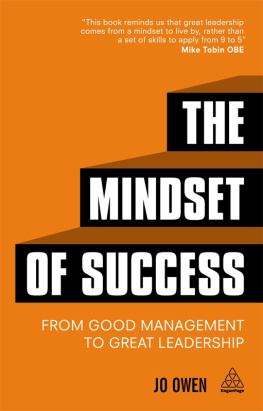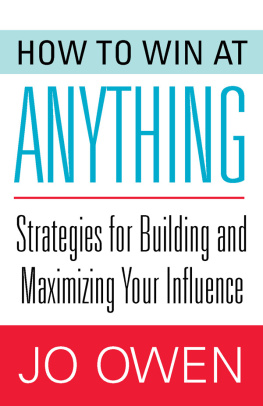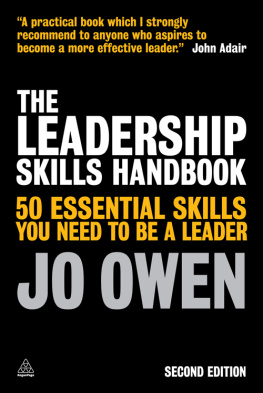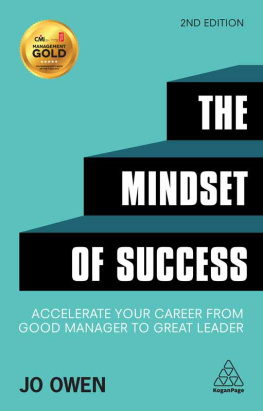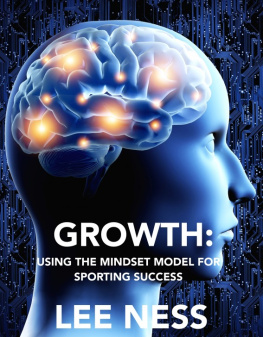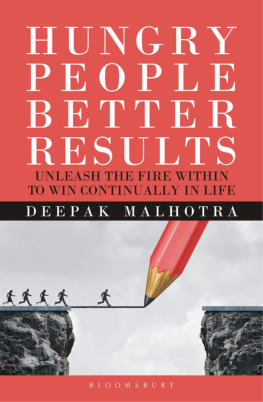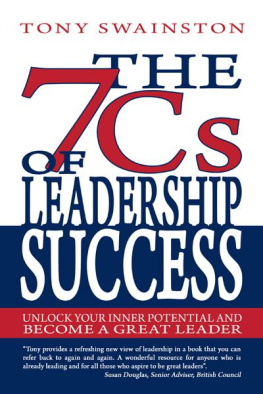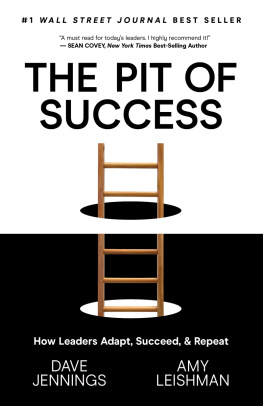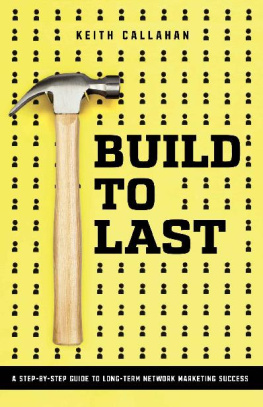Mindset starts with ambition because our potential is limited by our ambition. High aspirations drive us to take more risk, have more courage, show more resilience and be more positive. High aspirations start with a future perfect and work back from there; they are not constrained by todays reality. With a few simple habits, we can dare to dream and make those dreams come true.
I magine you have a magic wand and you can create the future you want. Create your ideal job with your perfect organization and great colleagues doing great things. Now compare that with your reality today. The difference between your ideal and your reality is your aspirations gap. We all have aspirations gaps: some are larger than others.
For many of us, these aspirations will remain pipe dreams. I wanted to become an astronaut, Prime Minister, rock star, billionaire, train driver and score the winning goal in the World Cup Final. All on the same day. My modest dreams have been dashed, so far.
But the best leaders dont just dream it: they do it. They imagine a better future for themselves and for others, then they make it happen. They have a way of thinking and acting that makes the impossible become possible. This book looks at how the best leaders consistently weave their magic. Their trick is that they think differently. If we learn to think differently, we will act differently and can achieve far more.
Our magic starts with a dream. We have to dare to dream. Then we have to dare to do it. There are always plenty of reasons why our dreams should not become true. We fear that we lack the skills, time or resources. We will see how none of these are real constraints. If it is important, we can find the time and resources and hire in the skills.
The real obstacle to success is not some malign force of nature. The real obstacle to success is in our own heads. We all have a dialogue going on in our heads, which often turns into a battle between the angels of hope and the demons of fear. The angels will let us dream our dream. They take us to a happy place where we fulfil our true potential and live the future that we want to live. The demons of fear help us and hinder us. They stop us from doing crazy things, but they also stop us doing great things. At their best, they are counsels of caution. At their worst, the demons stop us achieving our dreams and our potential. This book will show how we can make the most of our angels and demons.
Daring to dream
Martin Luther King galvanized the American Civil Rights Movement with his speech from the steps of the Lincoln Memorial to a crowd of 250,000 on 28 August 1963. His I have a dream speech reminded everyone of the United States Declaration of Independence: We hold these truths to be self-evident, that all men are created equal. In context, the statement was as revolutionary in 1963 as it was when it was first adopted by the Continental Congress on 4 July 1776.
But Kings speech nearly did not happen. His prepared speech was floundering until he got heckled by Mahalia Johnson with, Tell them about the dream, Martin! He then preached his favourite sermon: the dream. The speech was at risk, but the dream was never at risk: that is what he lived for, and died for, just five years later.
You cannot change the world unless you dare to dream, act on it and persuade others to act on it.
Most dreams are just that: they are fantasies that expire on the first contact with reality. But they do not have to be fantasies. So let us take a potential example.
Imagine you are listening to the radio and it is playing your favourite music. The radio station interrupts the music to do an interview with someone. You are a little too slow in switching channel, so you end up hearing the whole interview. It is a story of someone in an overseas project that gets great graduates to teach in tough inner-city schools. It sounds interesting and the sort of thing that should happen in your own country. So what do you do next?
Most people will carry on listening to some more music and they will forget the interview. Perhaps a few people will remember it and think that someone ought to do something about it. And why should that someone not be you? This is where the demons kick in. They will point out that you have no relevant skills and have not been near a school for 20 years; you have no resources and no time. There are huge practical difficulties: where on earth do you start? And if you start, what will people say? They will probably think you have lost leave of your senses, even if they are polite to your face. It is a recipe for social embarrassment and professional disaster. You quietly put the dream back in its box, along with the dreams about being an astronaut and a rock star.
It does not have to be that way. I called the radio station and got the name of the project: Teach for America (TFA). I called TFA and asked to speak to the CEO, who told me she was too busy but that some consultants from McKinsey had been interviewing her about education in London. So I called McKinsey and explained what I thought we should do: build a similar project to TFA in the UK. We started to get serious.
Then the demons started appearing in person, not just in our heads. All sorts of experts and powerful people popped out of nowhere to give us helpful advice. Did we realize that no top graduate teaches in the schools we wanted to serve? Why on earth would they want to join our madcap scheme? How would we train them? We had no money so where would the funding come from? Why would any school want such raw talent in such challenging circumstances? Have we talked to the unions, who are bound to hate it? Each of these experts sowed the cancer of self-doubt in our minds, encouraging our demons to stop us. But they were not saying we could not do it: they were saying that they could not do it. And they were right: they lacked the imagination or aspiration to create the future. They did not dare to dream, let alone act.
Ten years later our programme, Teach First, became the largest graduate recruiter in the UK. Before we started, no graduates from Oxford or Cambridge wanted to teach in the schools we serve, now nearly one in ten final-year undergraduates from Oxford and Cambridge apply to get on the programme.
The opportunities are always there: we do not have to look hard. They are being presented to us all the time, even in the middle of a rock show on the radio. Our normal response is to ignore the opportunity or to think that the idea is for someone else. And that is our real opportunity. If everyone thinks that someone else will do it, then no one will do it. The field is left open to us to take up the challenge.
High aspirations are not simply about having a dream. They are about having the courage to act on your dream. This is the starting point for all the best leaders who contributed to this book. We rise or fall to the level of our aspirations. Low aspirations are self-fulfilling. If we set out to achieve little, that is exactly what we will achieve.
The book starts with high aspirations because they are the glass ceiling in our minds: they set the limit on what we can achieve. If we want to achieve more, we have to shatter the glass ceiling. High aspirations drive many of the other mindsets: resilience, courage, being positive, accountable and collaborative. Dreams without action are just dreams: they become real aspirations when we drive to action. That takes hard work and a very particular mindset, which anyone can learn.
In this chapter we explore:
- What high aspirations are (and are not).
- Why we get blocked from having high aspirations.
- How we can develop the mindset of high aspirations.
We have to know what good looks like, how to develop it and what the traps are for us. At every stage throughout this book we will draw on the real-life experiences of our everyday heroes: people like you or me who simply achieve more consistently.
Next page
